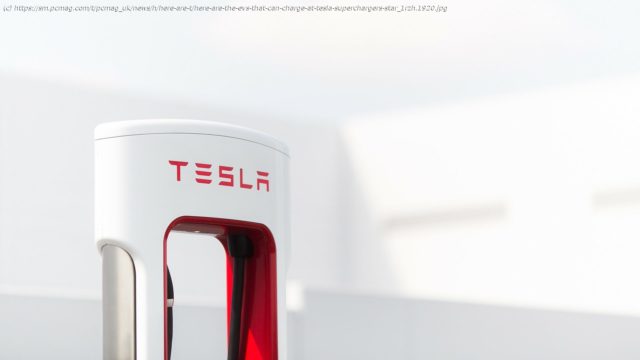If you have an electric vehicle from Ford, GM, Rivian, Volvo, Mercedes, Nissan—and now Honda—charging in the US will soon be a lot easier.
A major shift in the EV industry is making charging ports a key factor when choosing which electric vehicle to buy, or for getting the most out of one you already own.
Since May, seven major EV brands have said they’ll switch to Tesla’s charging port: Ford, General Motors, Rivian, Volvo, Mercedes, Nissan, and—as of this week—Honda. Starting in 2024, drivers will have access to 12,000 Tesla Superchargers via an adapter. Each brand will display available Tesla chargers in their mobile apps and via in-vehicle navigation systems.
In 2025, it gets even more serious, as these brands will build Tesla-backed North American Charging Standard (NACS) ports directly into their vehicles. At that point, charging at a Combined Charging System (CCS) station will require an adapter. Here’s how we got here, and what it means for current and future EV drivers.NACS vs. CCS: Battle of the Charging Ports
For the past few years, there has been a clear division between the plug type on Teslas and non-Teslas: Teslas have a custom plug—the NACS—and non-Teslas have the CCS port. It’s similar to the mobile phone industry, with Lightning ports on iPhones and USB-C on other brands.
CCS and NACS work the same way. Both plug into an external port on the vehicle similar to refueling a gas-powered vehicle. But the NACS port is noticeably smaller and sleeker than CCS.
Tesla has been experimenting with ways to bring its charging technology and network to non-Tesla drivers for years. In Europe, it has opened many Superchargers to non-Teslas via an adapter. In the US, efforts have been piecemeal. In October 2022, it released a level 2 home charger that works with non-Teslas. But its American Supercharger network was still exclusive to Tesla drivers at that point, as it requires Tesla’s proprietary port to use.
In November 2022, Tesla launched a campaign to make its port the national standard, supplanting CCS. It published the manufacturing specs, invited other automakers to adopt it, and dubbed it the NACS. No brands immediately jumped at the opportunity.
In February 2023, Tesla signed a deal with the Biden administration to open a portion of its network to non-Teslas, which has led to a handful of Superchargers becoming available to non-Teslas in the Northeast and California.






